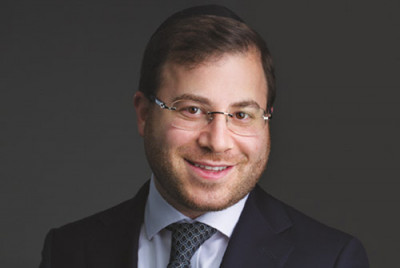
Part II
(Courtesy of Hass and Zaltz) Creating an Estate Plan that includes a Revocable Trust, pour-over Will, Property Power of Attorney, Health Care Power of Attorney, Living Will, and Health Insurance Portability and Accountability Act Authorization provides benefits both during life and at death. During life, the plan provides directions to your family regarding your medical care and finances if you become incapacitated or are otherwise unable to articulate your wishes. At death, the plan acts as a set of instructions to your fiduciaries regarding the distribution of your assets. Unfortunately, as many practitioners understand, signing the documents alone does not solve every problem or guarantee that everything will work as intended. Sometimes, even a properly executed Estate Plan contains mistakes. The first part in this five-part series (Common Mistakes in Estate Planning—Part I) focused on the common blunders made by individuals seeking to shortcut the process of estate planning by failing to create a proper Estate Plan. The second part of the series will continue to explore the most common mistakes in an Estate Plan by focusing on the failure to plan properly for the intended beneficiaries.
Let’s start with what seems like an obvious mistake: leaving assets outright to a minor beneficiary. Any Estate Plan that gives assets outright to a minor beneficiary has disastrous consequences. Although most states have statutes that prevent a minor beneficiary from inheriting money or assets directly, some permit the minor to hold title to certain assets, such as real estate. Of course, even if the state allows minors to hold title to real estate, minors cannot contract and therefore cannot alone exercise the bundle of rights associated with property ownership. Other states have statutes that let a parent take the property on the minor’s behalf if the assets do not exceed a modest amount, but inheritances often exceed that amount.

If the Estate Plan does not properly address minor beneficiaries, the fiduciary distributing the assets will need to ensure that he or she distributes the assets to the appropriate party, which could require petitioning the court for the appointment of a guardian or conservator to take title to the assets on the minor’s behalf. Guardianship proceedings involve significant time, trouble and expense, and often mean continuing court oversight. If instead, the Estate Plan contains provisions for the establishment of a trust along with the appointment of a trustee or a custodian for the property going to the minor, that can save the fiduciary, the estate, and by extension, the beneficiaries, tremendous time, and effort while giving the minor immediate access to the assets.
Even if all the beneficiaries in a plan have attained the age of majority, other life factors may require the implementation of a plan that leaves assets in trust rather than outright to the beneficiaries. For example, beneficiaries known for spending money, battling addiction, facing legal woes or dealing with creditors need the benefit of a trust holding their inheritance, rather than outright distribution. Implementation of a trust structure for beneficiaries with certain problems protects the inheritance and by extension, the beneficiaries from those problems. Savvy practitioners will encourage long-term thinking and planning for these issues while achieving the client’s goals and protecting their legacy.
Finally, if a beneficiary receives government benefits, then that, too, deserves special consideration. Failing to plan for a special needs beneficiary may cause a disaster in an Estate Plan, usually including loss of benefits for a beneficiary receiving public assistance. If a client wants to leave money or property to a special needs beneficiary, then it’s important that the assets pass through a Special Needs Trust to the beneficiary to preserve that beneficiary’s benefits. The trust needs to meet certain requirements to qualify as a Special Needs Trust and if it does, then the beneficiary will maintain his or her benefits. In addition to provisions for any beneficiaries currently receiving benefits, it’s important that the plan include provisions that authorize the creation of a Special Needs Trust for any beneficiary receiving government benefits at the time of distribution, not just upon the creation of the plan. Estate Plans need to have flexible provisions that allow evolution of the plan to meet changing needs and circumstances.

As this article has demonstrated, certain categories of beneficiaries require special provisions to protect them in an Estate Plan. Although folks undertaking Estate Planning think about which assets should go to whom, a qualified Trusts and Estates attorney understands that the intended beneficiaries impact the plan tremendously. An experienced Estate Planning attorney includes proper provisions in the plan to address the age and situation of the beneficiaries and to account for the inevitable changes that will occur in the beneficiary’s circumstances over time. Any plan that fails to address these matters ultimately fails the creator of the plan and their loved ones, at a time when they are least equipped to deal with it. Next week’s column will continue to explore common mistakes in an Estate Plan and how to avoid them.
To learn how to protect you and your family visit www.haaszaltz.com or call 845-425-3900. You can also email them at info@haaszaltz.com.











